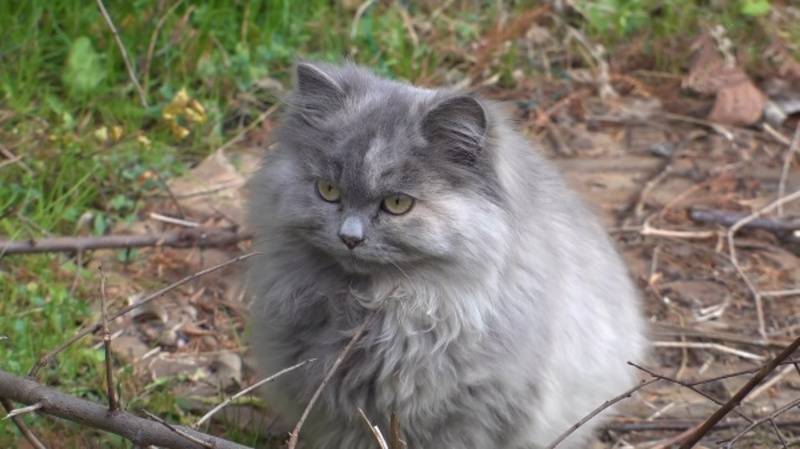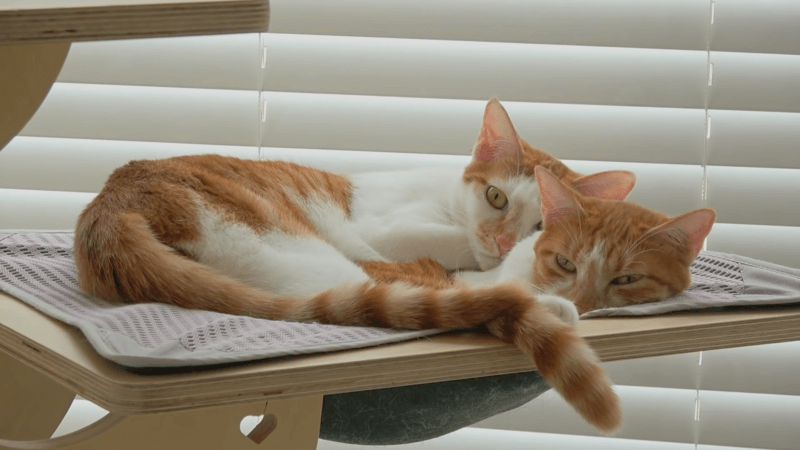No products in the cart.
How much CBD is too much for a cat? It’s a question that pet owners who are looking for natural cures for their feline pets frequently ask. CBD gains traction in holistic pet care so understanding the intricacies of dosing and safety becomes increasingly important.
In this blog, we will discuss the topic of CBD overdose in cats, elucidating the key factors for safe administration and dispelling prevalent misconceptions, offering a comprehensive guide for responsible CBD usage.
CBD Dosage for Cats
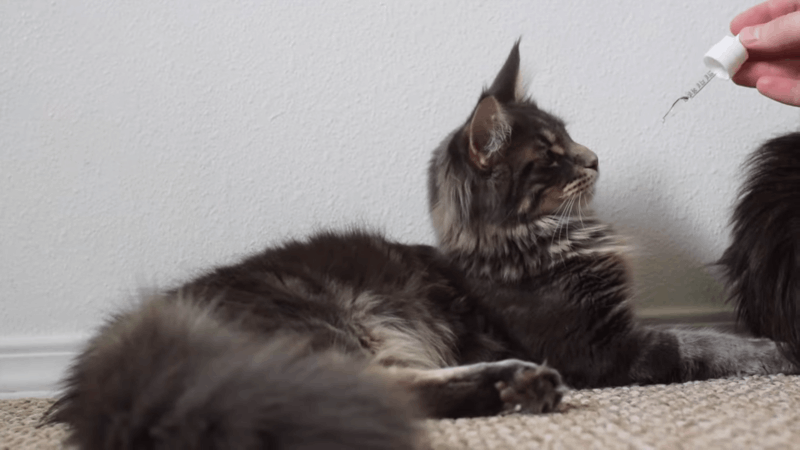
It is so important to determine the appropriate CBD dosage for cats. It can help ensure well-being and maximize the potential benefits of compound. Factors such as the cat’s weight, age, and health condition, along with the potency of the CBD product, must be considered.
It’s recommended to start with a low dose and gradually increase it until the desired effects are observed. Consulting with a veterinarian for personalized recommendations and following the dosing instructions provided by the manufacturer are essential steps in administering CBD to cats responsibly.
CBD Dose for Cats: The Maximum Safe Dose
Finding the maximum safe dose of CBD for cats involves careful consideration of various factors to mitigate potential risks. While CBD is generally well-tolerated by felines, exceeding the recommended dosage can lead to adverse effects.
It’s crucial to adhere to dosage guidelines and avoid over-administration to prevent issues such as lethargy, gastrointestinal upset, or changes in behavior. Monitoring the cat’s response to CBD and adjusting the dosage as needed can help ensure their safety and well-being.
How to Dose CBD for Cats?
Dosing CBD for cats requires a methodical approach to ensure accuracy and safety. Here are the important things that you should consider carefully before giving CBD for cats.
- Select the right CBD product: Choose a high-quality CBD product formulated for cats, ensuring it contains no THC.
- Consult with your veterinarian: Seek personalized recommendations from your vet based on your cat’s health condition and weight.
- Determine the correct dosage: Calculate the appropriate dosage based on your cat’s weight and the product’s potency.
- Start with a low dose: Begin with a low dose and gradually increase as needed to monitor your cat’s response.
- Administer the CBD: There are several ways to administer CBD to cats, including: mixing CBD with food or treats of cats, placing it directly into their mouth using a dropper or syringe, using CBD-infused cat treats or chews
- Monitor your cat’s response: the changes in behavior, appetite, and energy levels.
- Adjust the dosage if necessary: Modify the dosage based on your cat’s response, increasing or decreasing as needed.
- Be consistent: Administer CBD at the same time daily and stick to the recommended dosage.
- Continue monitoring and reevaluate: Regularly monitor your cat’s response and consult with your vet to adjust the dosage as needed.
To dose CBD for your cats safely and effectively and to provide potential relief from various health issues, following these steps and working closely with the veterinarian is important.
Can Cats Overdose on CBD?
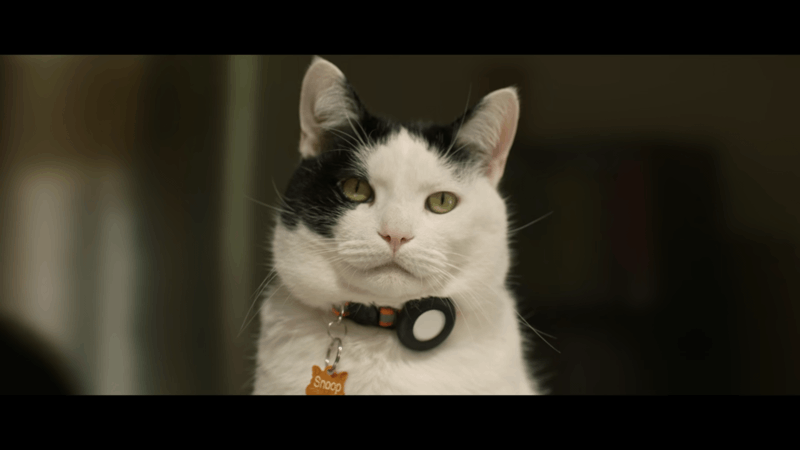
While CBD is generally considered safe for cats, it’s essential for pet owners to understand that overdosing is a possibility. Cats, like humans, have specific sensitivity to substances, and excessive CBD ingestion might result in negative side effects.
Responsible administration and adherence to dosage guidelines are crucial to mitigate the risk of overdose. Monitoring your cat’s response closely and consulting with a veterinarian can help ensure their safety when using CBD.
How Much CBD Is Too Much for a Cat?
Determining the appropriate dosage of CBD for cats involves considering various factors, including the cat’s weight, age, and overall health condition. It does not have the detailed answer to how much CBD is too much for a cat, however, exceeding the recommended dosage can increase the likelihood of adverse reactions.
It’s essential to start with a low dose and gradually increase it while closely monitoring your cat’s response. And pet owners should consult with a veterinarian. They can provide valuable guidance to the cat’s individual needs and help prevent the risk of overdosing.
CBD Overdose Symptoms in Cats
CBD overdose symptoms in cats can manifest in various ways, including:
- Lethargy or excessive drowsiness: Cats may become unusually sleepy or lethargic, spending more time than usual resting or sleeping.
- Lack of coordination: An overdose of CBD can affect a cat’s motor skills, leading to difficulty walking or a lack of coordination. You may notice your cat stumbling or having trouble maintaining balance.
- Agitation or restlessness: Some cats may exhibit signs of agitation or restlessness, appearing more anxious or unsettled than usual. They may pace, vocalize more than usual, or display signs of irritability.
- Vomiting or diarrhea: Digestive upset is another common symptom of CBD overdose in cats. This can manifest as vomiting, diarrhea, or both. It’s important to monitor your cat’s bowel movements and overall gastrointestinal health.
- Increased heart rate: In some cases, an overdose of CBD can lead to an elevated heart rate in cats. You may notice your cat’s heart beating faster than normal, which can be concerning and may indicate an adverse reaction to the CBD.
- Changes in appetite: CBD overdose may also affect a cat’s appetite. They may show a decreased interest in food or experience changes in eating habits. Some cats may eat less than usual, while others may lose their appetite altogether.
If you observe any of these symptoms in your cat after administering CBD, it’s essential to seek veterinary attention promptly. The veterinarian can give more advice about your cat’s health condition, provide appropriate care, and offer guidance on managing CBD dosage to prevent issues.
What Should I Do if My Cat Has Too Much CBD?
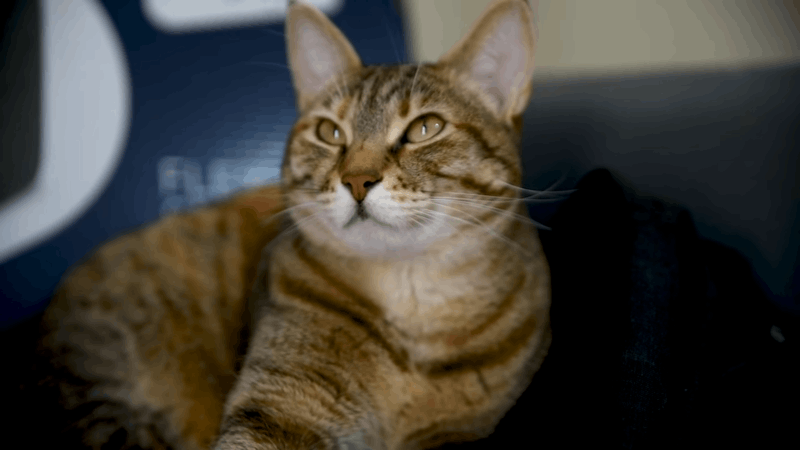
If you suspect that your cat has consumed too much CBD, it’s important to take action promptly. Here are some steps you can take:
- Contact your veterinarian: The first and most crucial step is to contact your veterinarian immediately. They can provide guidance tailored to your cat’s specific situation and advise you on the best course of action.
- Monitor symptoms: Keep an eye on your cat’s symptoms. Symptoms of CBD overdose in cats might include lethargy, vomiting, diarrhea, disorientation, changes in appetite, or changes in heart rate. Note down any unusual behavior or symptoms to report to the vet.
- Provide support: Ensure your cat has access to fresh water and a comfortable, quiet space to rest. Keep them calm and avoid stressing them further.
- Don’t administer anything without veterinary approval: Avoid giving your cat anything unless your veterinarian instructs you to do so. Administering any additional substances without professional guidance could worsen the situation.
- Follow veterinarian’s instructions: Your vet may recommend monitoring your cat at home or bringing them in for evaluation and treatment. Follow their instructions closely.
- Prevent future incidents: Store CBD products securely and out of your cat’s reach to prevent accidental ingestion in the future.
Remember, even though CBD is generally considered safe for cats in appropriate doses, too much can lead to adverse effects. Always consult your veterinarian before giving your cat any CBD products, and seek their guidance if you suspect an overdose.
Conclusion
Understanding the appropriate dosage of CBD for cats is essential for their well-being. While CBD can offer various benefits, it’s crucial to administer it responsibly and under veterinary guidance to prevent overdosing. By being mindful of how much CBD is too much for a cat and monitoring your cat’s response, you can ensure they enjoy the potential benefits of CBD safely and effectively.
Hello, I am Hazel Bennett, an experienced copywriter specializing in the fascinating topic of CBD for dogs. With a passion for pet wellness and extensive knowledge of CBD’s potential benefits, I am here to provide you with informative and engaging content.

